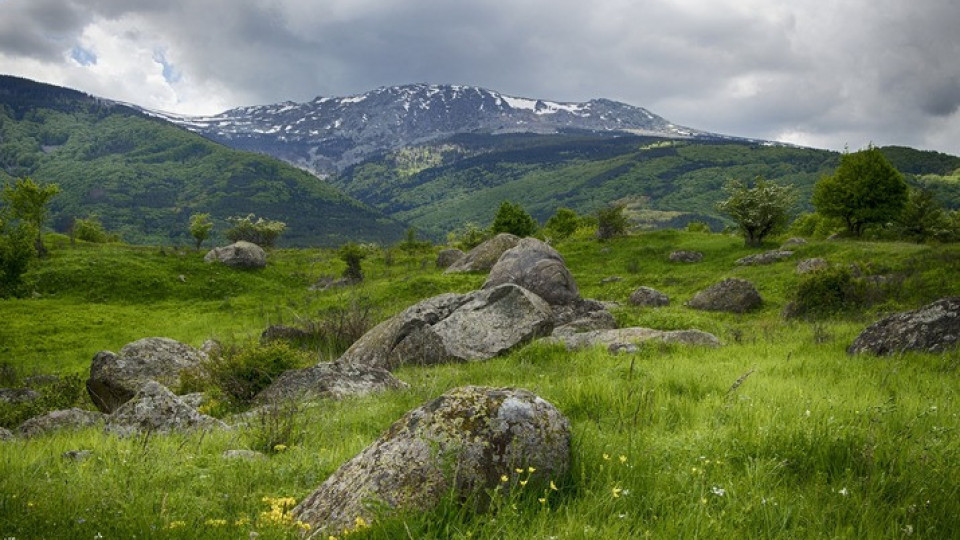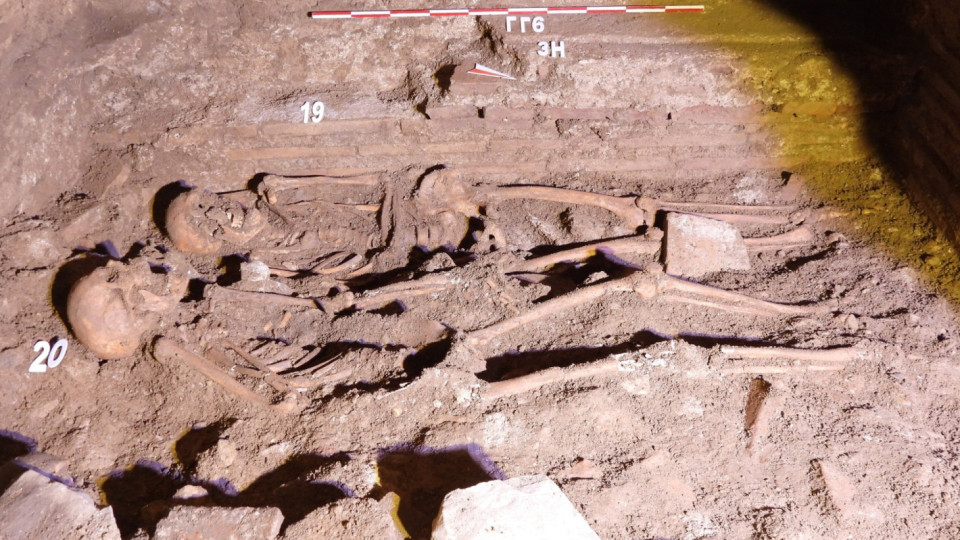“It is not true that the data presented in the report are outdated, borrowed from previous research, illegally extrapolated or simply made up. The data are not borrowed, but used for assessment of the tendencies in the environmental status, which is the main aim of the reporting under Article 17 of the Habitats Directive. If representatives of the Institute of Biodiversity and Ecosystem Research at the Bulgarian Academy of Sciences (IBER-BAS) had attended the organized workshops, they would have been informed about that. The publicly available sources lack information on the approach for calculation of the main parameters, i.e. metadata. They are not sufficient grounds to jump to conclusions, such as the ones of IBER-BAS. It is unclear where and how they have obtained information and what its nature is. It should be noted that the parameters and assessments included in the report have been validated by another contractor whose team includes leading experts from the Forest Research Institute at the Bulgarian Academy of Sciences,” DZZD Envimon explain. “It is not true that the methods for assessment of the state of the target species and habitats agreed during the first reporting period were not followed without any argumentation and the results cannot be compared with previously obtained data. The reporting guidelines have been changed and the new guidelines have been strictly followed in the preparation of the reports.” This is the opinion of Boris Karakushev, manager of DZZD Envimon.
The experts from the Bulgarian Academy of Sciences and the Greens evaded the reporting under NATURA 2000
“Bulgaria, as a Member of the European Union, is obliged to report every six years on the state of the species and the natural habitats and birds subject to protection in the eco network NATURA 2000. The experts from the Institute of Biodiversity and Ecosystem Research at the Bulgarian Academy of Sciences (IBER-BAS) were invited to join the working groups responsible for the preparation of Bulgaria’s reports under Article 17 of the Directive on Habitats of the European Commission,” says Boris Karakushev, manager of DZZD Envimon.
“The working groups are in session this week but no representatives of IBER-BAS are attending the organized discussions. The expert groups are seeing presentations about the approach to the reporting work. The opinion of IBER purposefully considers only the results of the reporting under Article 17 for the Directive on Habitats, while the reporting under Article 12 of the Directive on Birds has not been considered at all. No targeted field research has been carried out on the bird species in the framework of the project under Operational Programme Environment 2014 – 2020 before the reporting, but this does not prevent experts from IBER to participate in the discussions of the assessments.
“It should be noted that currently the webpage of the European Environmental Agency provides the opportunity for public comments and discussion of results reported under the two directives. Therefore, the fact that the reports have been submitted before the sessions of the expert working groups cannot be an argument for lack of attendance. And indeed, the presentation of new information and clarification of the approach, data and methods used in the preparation of the assessments in connection to the reports under Article 17 of the Habitats Directive is the main goal during the period of public consultations and the main reason for the organization of the working groups,” writes Karakushev.
The team of DZZD Envimon includes leading Bulgarian ecologists, biologists and experts. Other participants are the Institute for Biological Research Sinisha Stankovich in Belgrade and leading experts from the Aristotle University in Thessaloniki. It is true that IBER-BAS holds the main scientific potential in Bulgaria, but neither the Institute, nor its experts have replied to any of our numerous invitations to participate in the project. Furthermore, contrary to the current regulations, experts working at IBER-BAS have been expressly forbidden to participate in the project, including people who are not on permanent positions at the Institute. Furthermore, the management of IBER-BAS has also asked PhD students and professors from Bulgarian universities to refrain from work on this project and the concern expressed in their opinion is in apparent contradiction with their actions.
“It is not true that the data presented in the report are outdated, borrowed from previous research, illegally extrapolated or simply made up. The data are not borrowed, but used for assessment of the tendencies in the environmental status, which is the main aim of the reporting under Article 17 of the Directive on Habitats. If representatives of the Institute of Biodiversity and Ecosystem Research at the Bulgarian Academy of Sciences (IBER-BAS) had attended the organized workshops, they would have been clear about that.
“The publicly available sources lack information on the approach for calculation of the main parameters, i.e. metadata. They are not sufficient to jump to conclusions, such as the ones of IBER-BAS. It is unclear where and how they have obtained information and what its nature is. It should be noted that the parameters and assessments included in the report have been validated by another contractor whose team includes leading experts from the Forest Research Institute at the Bulgarian Academy of Sciences,” DZZD Envimon explain.
“It is not true that the methods for assessment of the state of the target species and habitats agreed during the first reporting period were not followed without any argumentation and the results cannot be compared with previously obtained data. The reporting guidelines have been changed and the new guidelines have been strictly followed in the preparation of the reports. This comment shows that inferences have been made without any knowledge of the Reporting Guidelines for the period 2013 – 2018. It seems that in spite of its capacity of a recognized institution IBER-BAS, is jumping to ill-founded conclusions.
“If the representatives of IBER-BAS had attended the working groups, they would have known about these changes. It is not true that changes have been made to methods for mapping and assessment of the conservation status. In the framework of the project, a thorough review of the available methods for mapping and the methods of the National System for Biodiversity Monitoring (NSBM) for assessment of the conservation status. None of these have been amended. This statement is slander produced either by lack of information or with the aim to damage the reputation of all experts involved in the implementation of the project.
“Last but not least, we declare that the working groups are organized not to legitimize the work done, but to present the manner in which the reports have been prepared, to clarify the process, which, we reiterate, is traceable and based on real data. We think it is possible that IBER-BAS has been misled and in the spirit of constructive action and in the interest of the Bulgarian nature, we use the opportunity to once again invite them to participate in the remaining sessions, where clarifications can be made in order to avoid further misunderstanding,” adds Boris Karakushev in his opinion sent to the media.
Source: Glasove.com







